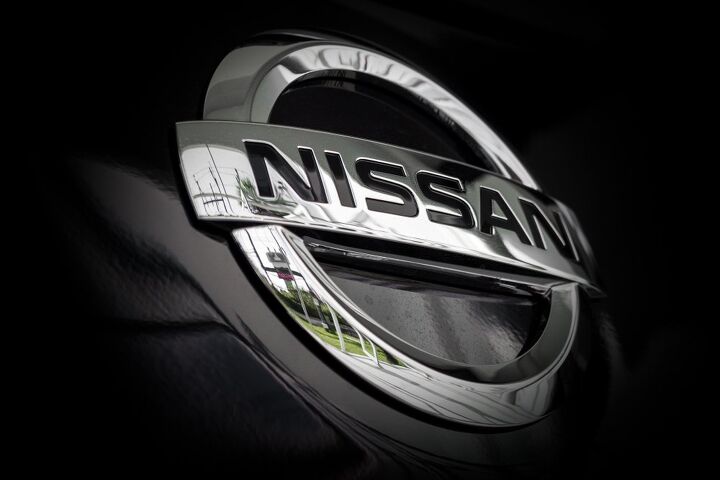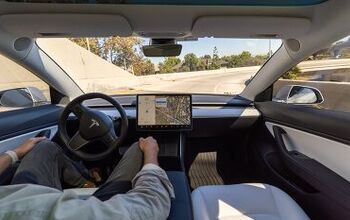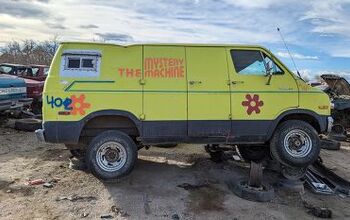Nissan Pulls Out of Russia

Nissan is ending operations in Russia. The company has announced that it has sold its assets to the Russian government for a single Euro, which actually sounds like one hell of a deal considering Nissan estimates the decision will cost the business roughly 100 billion yen – or $687 million USD.
With 2,000 employees located within the country, the automaker expressed some amount of regret for pulling out. But the geopolitical situation is making it tricky for any business that moves a lot of product on Western markets to continue operating inside of Russia. We’ve already seen a handful of automakers vowing to abandon the region, along with hotels and fast food chains. While the majority of these businesses are sold to the state or wealthy magnates to become generic versions of their former selves, this has proven much harder to accomplish when automotive factories come into play.
"On behalf of Nissan, I thank our Russian colleagues for their contribution to the business over many years," Nissan President and CEO Makoto Uchida said in a Tuesday statement. "While we cannot continue operating in the market, we have found the best possible solution to support our people."
Nissan leaves behind a sizable employee base, all of whom will reportedly receive some form of employment protection for 12 months, a factory in St. Petersburg, and the Sales & Marketing Center located in Moscow. However, it has retained the option to buy all that back within the next six years, similar to the deal Renault made during its own Russian pull-out.
As for how this will affect Nissan, the automaker produced 56,000 vehicles annually at the St. Petersburg plant prior to the pandemic with the company enjoying a 6.5 percent share of the overall market in 2018. But due to novel hurdles pertaining to the Russo-Ukrainian War and supply constraints stemming from pandemic-related restrictions the automaker doesn’t foresee the pullout being any more harmful to its bottom line than sticking around.
Renault wasn’t so lucky due to its substantial ties to AvtoVAZ – Russia’s largest automaker. The company seemed visibly hesitant to remove itself from the market until Ukrainian President Volodymyr Zelensky addressed French lawmakers, mentioning Renault by name. Following increased political pressure, the company sold all of its assets to the Russian government.
"Renault, Auchan [and] Leroy Merlin must stop sponsoring the Russian war machine, and the murder of children and women, rapes, robberies and looting committed by the Russian army," Zelensky said in a video address to France's National Assembly. "All companies must remember that values are worth more than profit."
Hopefully, Renault feels similarly, because the company expects its net income for the 2nd half of 2022 to be €331 million ($322 million USD) lighter than originally presumed. On the surface, it sounds impossible that Renault will be taking a hit while Nissan thinks it’ll be breaking even. But the former entity holds roughly 30 percent of the Russian market (again due largely to having been a majority stakeholder in AvtoVAZ). Nissan’s share is a fraction of that and has been gradually shrinking over the last few years.
Plenty of other automakers have vowed to suspend or limit operations in Russia after Western sanctions were introduced, though most don’t have the kind of sales volumes or localized assets for it to really matter. Though there have been exceptions – including Toyota, Suzuki, AB Volvo, Daimler Truck, BMW, and Mercedes-Benz.
Volkswagen is another major brand in the region and has already announced it would cease all exports to Russia while simultaneously suspending production at plants in Kaluga and Nizhny Novgorod. Though it didn’t seem thrilled about the prospect of losing business. The company made its announcement in March, adding that it was hoping the sweeping sanctions imposed by the European Union and the United States would be clarified.
Renault and Nissan’s decision to abandon Russia have left less to the imagination. They’re out of the market entirely, with the possibility of buying back their old stuff being left on the table. While they’ll be impacted differently by the pullout, the duo seem to be enjoying a momentary realignment and have expressed an interest in strengthening their relationship. Earlier this week, the pair announced that they would be holding meetings to discuss the future of their ongoing alliance – making mention that the Japanese automaker was considering investing in a new electric vehicle venture helmed by its French partner. Though this is unlikely to fall outside of the purview of the existing $26-billion investment designed to ensure the Renault-Nissan-Mitsubishi alliance goes all-electric.
[Image: Memory Stockphoto/Shutterstock]
Become a TTAC insider. Get the latest news, features, TTAC takes, and everything else that gets to the truth about cars first by subscribing to our newsletter.

A staunch consumer advocate tracking industry trends and regulation. Before joining TTAC, Matt spent a decade working for marketing and research firms based in NYC. Clients included several of the world’s largest automakers, global tire brands, and aftermarket part suppliers. Dissatisfied with the corporate world and resentful of having to wear suits everyday, he pivoted to writing about cars. Since then, that man has become an ardent supporter of the right-to-repair movement, been interviewed on the auto industry by national radio broadcasts, driven more rental cars than anyone ever should, participated in amateur rallying events, and received the requisite minimum training as sanctioned by the SCCA. Handy with a wrench, Matt grew up surrounded by Detroit auto workers and managed to get a pizza delivery job before he was legally eligible. He later found himself driving box trucks through Manhattan, guaranteeing future sympathy for actual truckers. He continues to conduct research pertaining to the automotive sector as an independent contractor and has since moved back to his native Michigan, closer to where the cars are born. A contrarian, Matt claims to prefer understeer — stating that front and all-wheel drive vehicles cater best to his driving style.
More by Matt Posky
Latest Car Reviews
Read moreLatest Product Reviews
Read moreRecent Comments
- 1sowa Its clearly the "Honda Anyone"
- Oberkanone Nope. Never. Run away. Unreliable money pit.
- Cprescott Good riddance. I hear rent is really cheap in Gary, Indiana.
- Cprescott Apple will eliminate 1 tire and wheel since that is redundant and will make sure the computer system is fruit based and incompatible with anything else.
- Theflyersfan To: Fisker Manhattan Beach EmployeesFrom: The walking god himselfRe: Why your badge didn't workHey guys, you probably noticed some changes this morning like the locks being changed and the lights being out. Don't worry. Bob in Accounting has a huge basement and a pool table so we're going to move on there for our new super awesome headquarters. Get there quickly before the good parking is gone!

































Comments
Join the conversation
Renault is big in Russia - they own Lada. Nissan and Renault had no intention to leave Russia. They only did it because President Zelensky shamed them publicly. He basically cancelled them in Russia.
So it begs the question of who is left manufacturing cars in Russia and who was making their military vehicles?